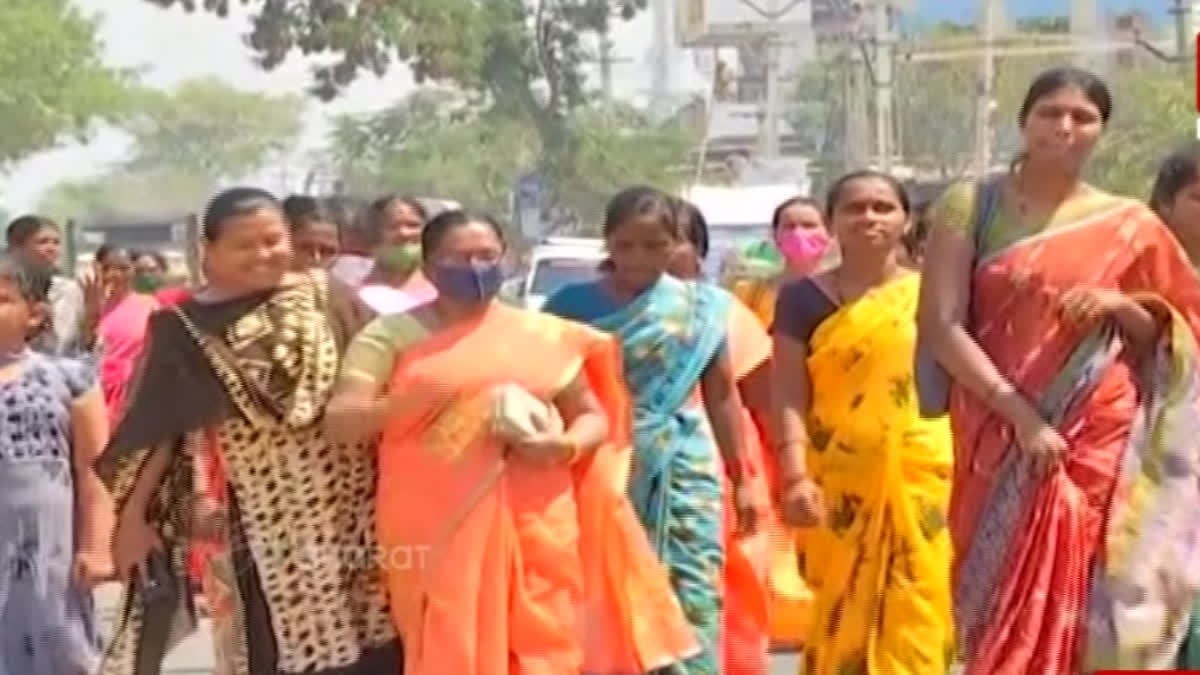New Delhi: With the approval of the Union Cabinet for the introduction of the Women's Reservation Bill in the Lok Sabha, the Lower House of Parliament is all set to debate and decide the fate of fixing a quota for women in the Lok Sabha and Assemblies this week. With broad political support, this constitutional amendment bill, which could not be passed in the Lok Sabha for more than 13 years, is likely to sail through this time.
However, it has not been an easy journey for the Women's Reservation Bill in the country as it requires a constitutional amendment and building political consensus around the issue has not been easy for successive governments since 1992. The present Bill was passed by the Rajya Sabha in March 2010 and since then it has not been passed in the Lok Sabha for more than 13 years.
But, the history of legislative efforts to get a constitutional Amendment Bill passed in Parliament goes back more than three decades as the demand for women empowerment by fixing a quota for them in the Lok Sabha and Vidhan Sabhas found support in the 73rd and 74th Constitution Amendment Bill in 1992 when these Bills were passed during the tenure of the then Prime Minister Narasimha Rao to create the third tier of governance in the country, known as Panchayat Raj institutions.
Also read: Cong dubs women's reservation bill election jumla, huge betrayal of women's hopes
These two constitutional amendments – the 73rd and the 74th – paved the way for the reservation of one-third of seats in the Panchayat Raj institutions for women. According to a background note submitted by the Ministry of Law and Justice to the Rajya Sabha’s Parliamentary Standing Committee, three Bills were introduced in Parliament in 1996, 1998 and 1999 respectively, but due to one reason or the other, the Bills could not be passed.
The issue of providing reservation of seats for women in the Lok Sabha and the Legislative Assemblies of the States was first taken up by Parliament for deliberation through the introduction of the Constitution (Eighty-first Amendment) Bill, 1996 in the 11th Lok Sabha on the September 12, 1996. Given the sensitive political nature of the Bill, it was referred to the Joint Committee of the two Houses of Parliament under the Chairmanship of Geeta Mukherjee, who was a member of the Lok Sabha from Panskura in West Bengal.
Though the Geeta Mukherjee-led Joint Parliamentary Committee submitted its report and made several recommendations in December 1996, the Bill could not be passed and lapsed with the dissolution of the 11th Lok Sabha. Another effort was made in the 12th Lok Sabha and a similar Bill, the Constitution (Eighty-fourth Amendment) Bill, 1998 was introduced in the 12th Lok Sabha, which also lapsed with the dissolution of the 12th Lok Sabha.
The third attempt was made in the 13th Lok Sabha as the Constitution (Eighty-Fifth Amendment) Bill, 1999 was prepared on the lines of the earlier two Constitution Amendments Bills and introduced in the Lok Sabha in December 1999, but could not be considered due to lack of political consensus.
The Constitution Amendment Bill (the 85th Amendment Bill) to provide women reservation in the Lok Sabha and Vidhan Sabhas also lapsed with the dissolution of the 13th Lok Sabha. The UPA government introduced the Constitution (One Hundred and Eighth Amendment) Bill, 2008 in the Rajya Sabha on May 6 2008, which was referred to the department-related Parliamentary Standing Committee of the Rajya Sabha on May 8, 2008.
The Standing Committee led by Jayanti Natarajan submitted its recommendations to the Rajya Sabha and Lok Sabha in December 2009 and the Bill was passed by the Rajya Sabha in March 2010. The Rajya Sabha being a permanent house, the Bill passed by the Rajya Sabha on March 9, 2010, did not lapse as the earlier Constitution Amendment Bills introduced in the Lok Sabha in 1996, 1998 and 1999 had lapsed with the dissolution of the 11th, 12th and 13th Lok Sabhas.
Efforts were also made by the then Atal Bihari Vajpayee government in 2002 and 2003 to get the Women's Reservation Bill passed in the Lok Sabha, but due to lack of political consensus, the government could not get them passed in the Lower House. After the change of government in May 2004, the then Prime Minister Manmohan Singh’s government introduced the Bill in the Rajya Sabha in May 2008 and passed it in March 2010.
Given the broad political support and clear majority of the NDA in the Lok Sabha, Prime Minister Narendra Modi decided to give it a fresh push during the remainder of his second term as the Prime Minister. However, Law Minister Arjun Ram Meghwal introduced a new bill (the Constitution (One Hundred and Twenty-eighth Amendment) Bill, 2023) in the Lok Sabha on Tuesday (September 19, 2023).
The issue of the Women's Reservation Bill in the Lok Sabha and state Assemblies has been highlighted in the election manifesto of the Bharatiya Janata Party in both the 2014 and 2019 Lok Sabha elections and Prime Minister Modi on Tuesday urged the Members of Parliament to pass the Women's Reservation Bill with the full majority.



